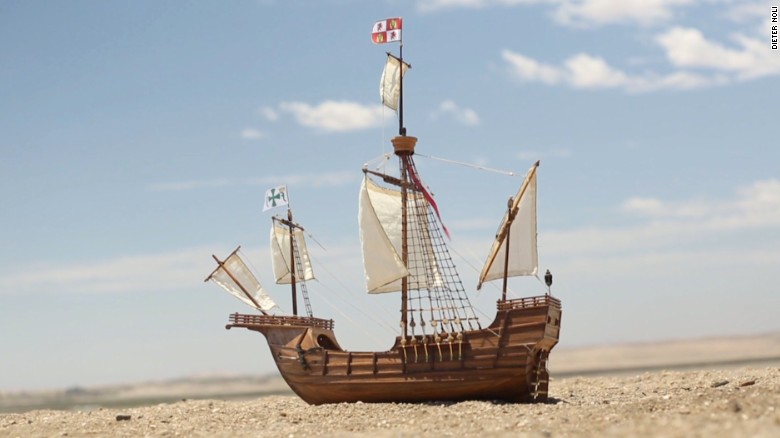Treasure Shipwreck Found Off Namibia
It was almost 500 years ago when The Bom Jesus, a Portuguese sailing ship, inexplicably vanished while en route to India. The vessel was carrying an immense treasure that has eluded even the most ardent and focused treasure hunters. A recent discovery in the Namibia desert, however, may signal the end of that hunt.

The Sperrgebiet, or "forbidden territory,” houses the joint operation of the DeBeers Diamond company and the Namibian government. This patch of desert near the African coastline—approximately 10,000 square miles—has pulsated with the exploits of would-be treasure hunters for quite some time now.
The hunt began a hundred years prior when a German prospector happened upon a diamond in the area. News of this discovery spread throughout the prospector’s homeland, and an influx of German people would take to the area with hopes of making a similar discovery. More notably, though, the discovery would prompt Namdeb (portmanteau of Namibia and DeBeers) to mine the area.
In 2008, miners were pushing their bulldozers across the golden sands, when they happened upon metal, wood, and pipes assembled in a strange, and at the time indiscernible, mass.
A call was made to archaeologist Dieter Noli who quickly identified the objects on the “disturbed beach” as a shipwreck.
Amid the wreckage were 44,000 pounds of copper ingots, which archaeologist Bruno Werz believes allowed the ship to survive its 500-year isolation.
"Wooden remains would normally have been eaten by organisms," said Werz, "but the poison would have protected part of those materials."
Bom Jesus Found?
The ship’s cargo matches that of The Bom Jesus, as articulated by the sixteenth-century book, “Memorias Das Armadas,” which lists the ship as lost. The ship mysteriously disappeared in 1533 which would make this the oldest shipwreck to be discovered in Sub Saharan Africa.
Nearly 24 pounds of treasure were discovered. Among these relics were 2,000 mint condition gold coins from Portugal and Spain, Portuguese silver coins, cannons made of bronze, tons of copper ingots, more than 50 elephant tusks, and navigational tools.
"We figured out the ship came in, it hit a rock and it leaned over," said Noli. "The superstructure started breaking up and the chest with the coins was in the captain's cabin, and it broke free and fell to the bottom of the sea intact... In breaking up, a very heavy part of the side of the ship fell on that chest and bent some of the coins. You can see the force by which the chest was hit, but it also protected the chest."
The remnants of the ship are now being guarded by Namdeb. As per 16th-century practice, timber, muskets, cannonballs and swords are being kept in damp storage. Most of the find, however, is being kept out of the public eye.
There are talks about featuring the shipwreck in a museum but as of yet nothing is confirmed.
